 Ghost Trapper 12 The Necromancer's Library
Ghost Trapper 12 The Necromancer's Library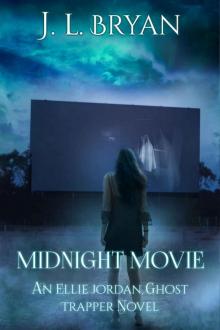 Ghost Trapper 14 Midnight Movie
Ghost Trapper 14 Midnight Movie_preview.jpg) Fairy Metal Thunder (Songs of Magic, Book 1)
Fairy Metal Thunder (Songs of Magic, Book 1)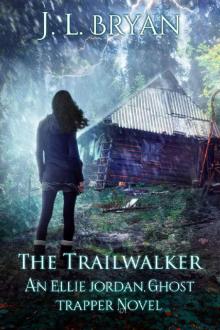 Ghost Trapper 13 The Trailwalker
Ghost Trapper 13 The Trailwalker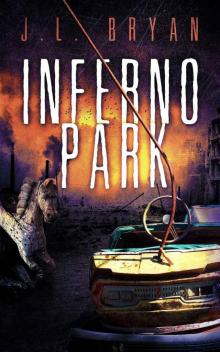 Inferno Park
Inferno Park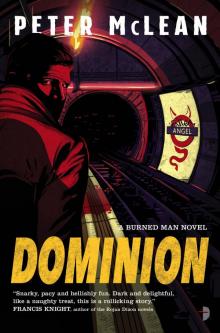 Dominion
Dominion Nomad
Nomad The Tower (Ellie Jordan, Ghost Trapper Book 9)
The Tower (Ellie Jordan, Ghost Trapper Book 9) Jenny Pox (The Paranormals, Book 1)
Jenny Pox (The Paranormals, Book 1) Tommy Nightmare (Jenny Pox #2)
Tommy Nightmare (Jenny Pox #2) Cold Shadows (Ellie Jordan, Ghost Trapper Book 2)
Cold Shadows (Ellie Jordan, Ghost Trapper Book 2) Alexander Death (The Paranormals, Book 3)
Alexander Death (The Paranormals, Book 3)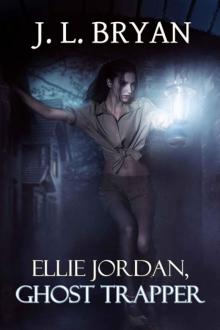 Ellie Jordan, Ghost Trapper
Ellie Jordan, Ghost Trapper Lullaby (Ellie Jordan, Ghost Trapper Book 7)
Lullaby (Ellie Jordan, Ghost Trapper Book 7) EJ06 - Maze of Souls
EJ06 - Maze of Souls Fairy Metal Thunder (Songs of Magic, #1)
Fairy Metal Thunder (Songs of Magic, #1) House of Whispers (Ellie Jordan, Ghost Trapper Book 5)
House of Whispers (Ellie Jordan, Ghost Trapper Book 5) Terminal (Ellie Jordan, Ghost Trapper Book 4)
Terminal (Ellie Jordan, Ghost Trapper Book 4) Jenny Pox
Jenny Pox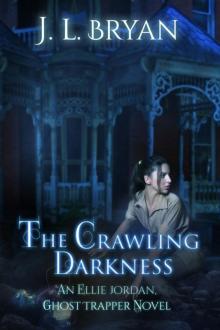 The Crawling Darkness (Ellie Jordan, Ghost Trapper Book 3)
The Crawling Darkness (Ellie Jordan, Ghost Trapper Book 3) The Keeper (Ellie Jordan, Ghost Trapper Book 8)
The Keeper (Ellie Jordan, Ghost Trapper Book 8) Ghost Trapper 12 The Necromancer's Library
Ghost Trapper 12 The Necromancer's Library Ghost Trapper 14 Midnight Movie
Ghost Trapper 14 Midnight Movie_preview.jpg) Fairy Metal Thunder (Songs of Magic, Book 1)
Fairy Metal Thunder (Songs of Magic, Book 1) Ghost Trapper 13 The Trailwalker
Ghost Trapper 13 The Trailwalker Inferno Park
Inferno Park Dominion
Dominion Nomad
Nomad The Tower (Ellie Jordan, Ghost Trapper Book 9)
The Tower (Ellie Jordan, Ghost Trapper Book 9) Jenny Pox (The Paranormals, Book 1)
Jenny Pox (The Paranormals, Book 1) Tommy Nightmare (Jenny Pox #2)
Tommy Nightmare (Jenny Pox #2) Cold Shadows (Ellie Jordan, Ghost Trapper Book 2)
Cold Shadows (Ellie Jordan, Ghost Trapper Book 2) Alexander Death (The Paranormals, Book 3)
Alexander Death (The Paranormals, Book 3) Ellie Jordan, Ghost Trapper
Ellie Jordan, Ghost Trapper Lullaby (Ellie Jordan, Ghost Trapper Book 7)
Lullaby (Ellie Jordan, Ghost Trapper Book 7) EJ06 - Maze of Souls
EJ06 - Maze of Souls Fairy Metal Thunder (Songs of Magic, #1)
Fairy Metal Thunder (Songs of Magic, #1) House of Whispers (Ellie Jordan, Ghost Trapper Book 5)
House of Whispers (Ellie Jordan, Ghost Trapper Book 5) Terminal (Ellie Jordan, Ghost Trapper Book 4)
Terminal (Ellie Jordan, Ghost Trapper Book 4) Jenny Pox
Jenny Pox The Crawling Darkness (Ellie Jordan, Ghost Trapper Book 3)
The Crawling Darkness (Ellie Jordan, Ghost Trapper Book 3) The Keeper (Ellie Jordan, Ghost Trapper Book 8)
The Keeper (Ellie Jordan, Ghost Trapper Book 8)